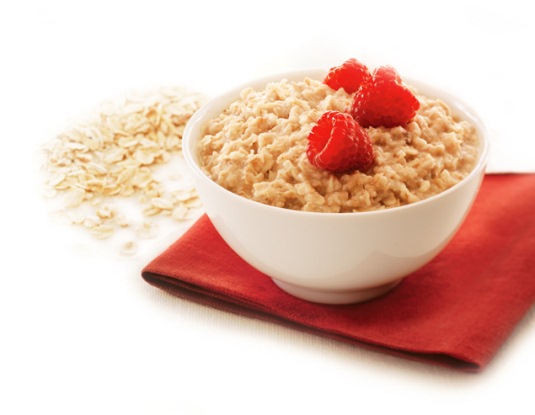
With little to no regulation in this country, many big food companies label their products as “healthy” and “natural,” leading people to think what they’re consuming is healthy when it’s anything but. Remember, if it sounds too good to be true, it probably is! Just because your Oreo-like cookie is organic doesn’t make it a health food. To find out more, I turned to senior registered dietitian at Selvera Wellness, Amanda Foti, and asked her to bust what she considers to be the most common healthy food myths.
Flavored Instant Oatmeal or Cereal for Breakfast
Many people believe that having oatmeal or cereal in the morning is a healthy way to start their day. This may not be the case, though, as many options tend to be high in sugar and carbs and low in protein and fiber! This high-carb, low-fiber/protein breakfast will spike glucose levels, causing energy dips, and likely leave you hungry shortly after. An ideal breakfast is a combination of high fiber and protein. If you’re choosing cereal, check the nutrition facts label for 100% whole wheat with <10g sugar and at least 4-6 g fiber. For oatmeal, pick old-fashioned or steel-cut with at least 4-6 g fiber, and be sure to avoid any instant options. Add a protein source to both of these, such as regular or soy milk or a couple of hard-boiled eggs on the side.
Protein Shake after Workout
Unless you’re training for a competitive sport, race, or complete 60+ minutes of an intense gym session, your body doesn’t need to refuel with the additional calories from a protein shake. You can fuel and recover from moderate exercise by planning your meals and regular snacks around your activity. Even healthy and nutrient-dense foods have calories and can derail weight loss efforts if consumed in excess. If you’re eating a meal within an hour post-workout, be sure to include protein and fiber to replenish stores.
Pre-made Yogurt Parfait
Pre-made parfait can contain up to 25 g sugar/serving, which is how much total you should be consuming each day. Skip the coffee shop pre-made yogurt parfait and DIY with Greek yogurt, whole fruit, and high-fiber cereal for a breakfast with much less sugar, but much more protein and fiber. This will keep you full until lunch.
Fat-free Products
There’s no need to fear fat! When fat is stripped from products, manufacturers add extra sugar, salt, and artificial additives to boost the flavor and texture. Fat is digested slower than carbohydrates, which means you’ll stay satiated and satisfied longer. Plus, fat is an essential nutrient vital for the most basic functions in our bodies, so instead of fat-free, opt for low-fat products.
Choosing “Multigrain” Products versus Whole Grains
“Multigrain” simply means that a variety of grains are contained in said product. Whole grain, however, implies that the entire grain, which contains more fiber and nutrients, is packed into that product. Especially when buying bread or bread products, be sure that “100% whole-wheat flour” or “100% whole-grain flour” is the first ingredient on the ingredients list!
Photo Courtesy of: Katherine Frey/The Washington Post
